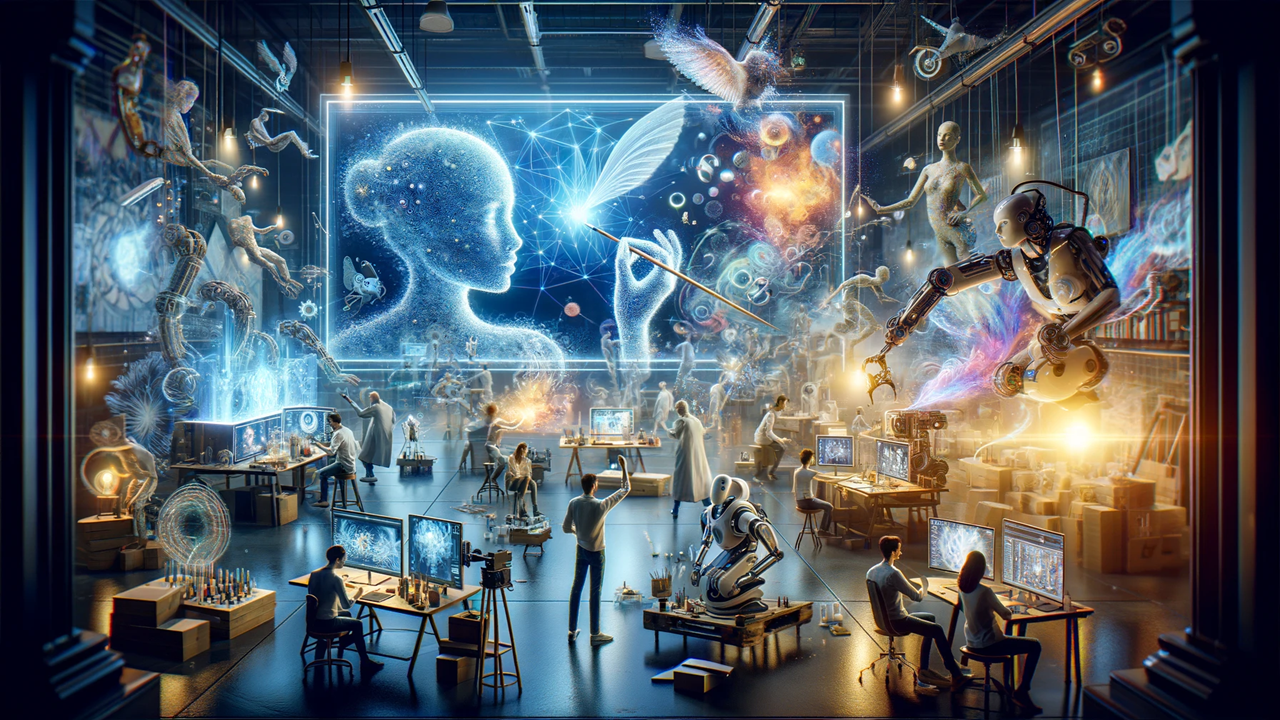The Creative Frontier: Unleashing Potential with Generative AI
This article explores the transformative impact of generative AI in automating processes and creating content across various fields. With its ability to enhance creativity and streamline operations, generative AI is poised for rapid development and broad adoption, promising to reshape industries with its advanced capabilities.

The realm of generative artificial intelligence (AI) is witnessing a revolution that is reshaping how content is created and processes are automated. This transformative technology is not just about simplifying tasks; it's about redefining the creative and operational landscapes across industries. "The Creative Frontier: Unleashing Potential with Generative AI" explores how these tools are leading to rapid development and widespread market adoption, setting the stage for a future where AI's role is integral and ubiquitous.
Understanding Generative AI
Generative AI refers to algorithms and models that can generate new data that resembles the training data. This capability spans text, images, videos, and even code. The technology is grounded in machine learning models, particularly neural networks, that digest vast amounts of data to produce outputs that are not only high-quality but also novel and contextually relevant.
Applications in Content Creation
In the content domain, generative AI has introduced a paradigm shift. Tools like ChatGPT for text generation and DALL-E for image creation have democratized content production, allowing creators to generate articles, graphics, and multimedia at scale. These tools are not just labor-saving but also creativity-enhancing, as they provide templates and drafts that can be further refined by human creativity.
Automating Processes
Beyond content, generative AI is streamlining complex processes. In software development, for instance, GitHub Copilot uses AI to suggest code snippets and entire functions based on the context of existing code, significantly speeding up the development process. In business, AI-driven analytics tools forecast trends and automate reporting, enabling faster decision-making.
Marketing and Personalization
One of the standout applications of generative AI is in marketing, where personalization is key. AI models analyze customer data to tailor marketing messages, recommend products, and even create personalized shopping experiences. This approach not only improves customer satisfaction but also increases conversion rates and strengthens brand loyalty.
Challenges and Ethical Considerations
With great power comes great responsibility, and generative AI is no exception. Issues of copyright, data privacy, and ethical use are at the forefront of discussions about generative AI. Ensuring that these tools are used responsibly involves clear guidelines and regulations, which are still in development across many regions.
Integration with Existing Systems
For generative AI to be truly transformative, it must integrate seamlessly with existing systems and workflows. This integration allows businesses to leverage AI capabilities without overhauling their operational structures. For example, AI can be embedded in customer relationship management (CRM) systems to automate interactions and data entry, freeing up human agents for complex customer service tasks.
The Future of Generative AI
Looking ahead, generative AI is poised to become even more sophisticated. Advancements in AI models, like those seen in OpenAI’s GPT and Google’s BERT, suggest future iterations will offer even greater accuracy and creative capabilities. Moreover, as the technology becomes more accessible, its adoption will likely extend beyond large corporations to small businesses and individual creators, democratizing high-quality content creation and process automation.
Conclusion
Generative AI represents a significant leap forward in our ability to create and automate. As this technology continues to evolve, it will unlock unprecedented efficiencies and creative opportunities across all sectors of the economy. The future where AI partners with human ingenuity is not just a possibility—it is rapidly becoming a reality, promising a world where creativity and productivity reach new heights.










